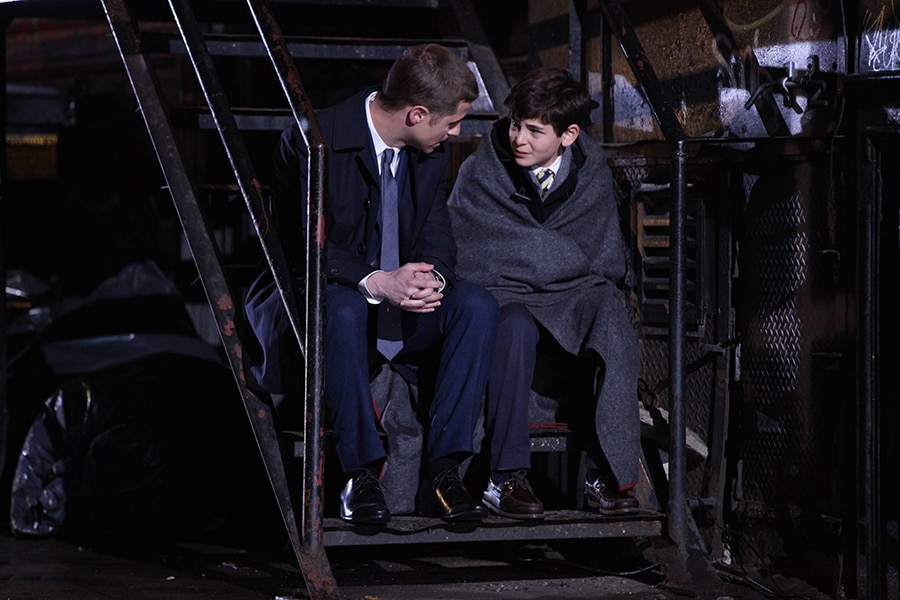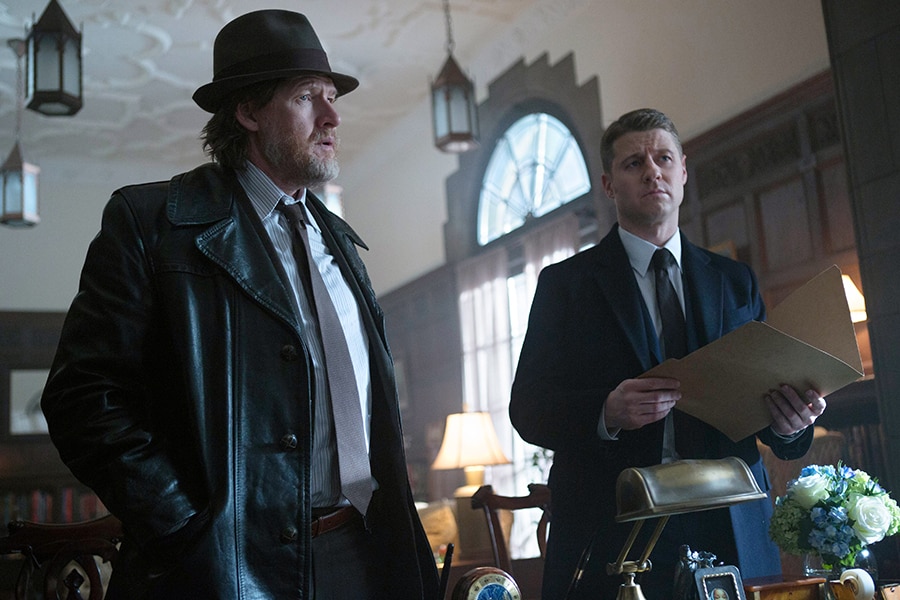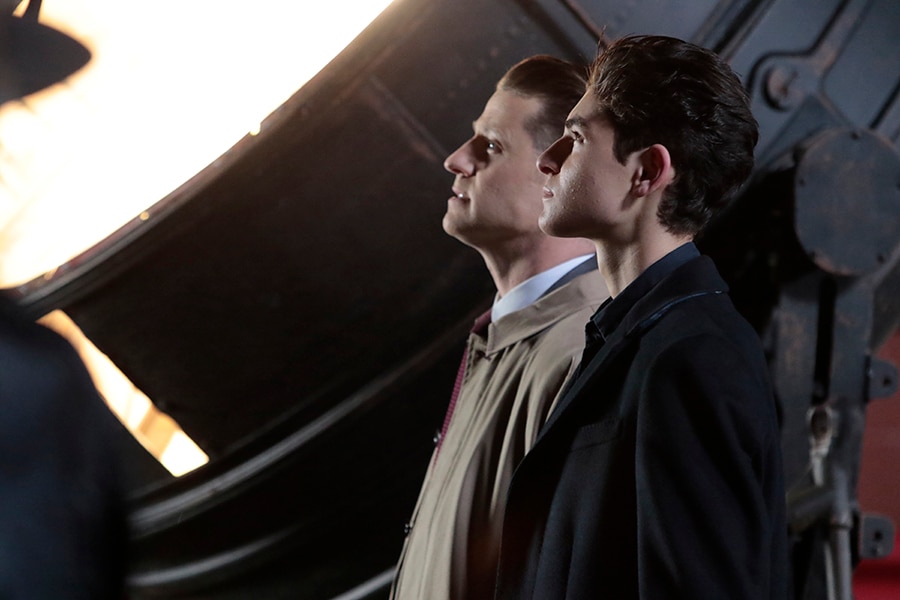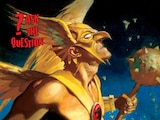Gotham raised a lot of eyebrows when it was first announced. A story about Bruce Wayne’s childhood was a fresh enough take, but it was fresh for a reason. Comics and other media rarely outline that time in Bruce’s life because he was, understandably, just presumed to be furious or depressed the whole time. Watching your parents get murdered right in front of your eyes will do that to a kid! Despite audience trepidation, a decent number of viewers tuned into the series premiere, myself included.
It’s a solid enough pilot, but it won me over with one simple line—
“There will be light, Bruce.”
It was at that moment when (then Detective) James Gordon uttered those words to a shattered and shocked Bruce Wayne that I knew Gotham had me hooked for good. And it did. The series takes some liberties, but at its core it’s a series that lives up to the Batman legacy in spades.

One of the most important aspects of the series is its focus on the complicated Jim Gordon. We start with him as a fresh-faced cop at the Gotham City Police Department, with no idea the level of corruption he’s about to uncover. Carmine Falcone already has nearly the entire force in his pocket, making his criminal dealings in Gotham a cinch. You can imagine his chagrin upon finding out the force had hired someone with ethics to join their ranks.
Of course, for comedy’s sake, Jim is partnered with the morally ambiguous and ethically complicated Harvey Bullock. Harvey’s not quite in Carmine’s pocket, but he does have a connection with Gotham’s underground (and an eye for one Fish Mooney). The two bring a strange balance to one another, though they obviously butt heads a bit in the beginning. Harvey gains more morals as the series progresses, while Jim finds himself making the wrong decision in more than one ethical quandary.
The cleverness of the series is that few people are going to want to watch a show that’s exclusively about a young Bruce Wayne’s pain. Similarly, few people care about Jim Gordon’s beginnings on the force. Now, while I’m the exception to both those rules, you can’t make a successful show if your demographic is too small to get the ratings that you need. By combining both stories and providing a fresh take on Batman’s origins, Gotham really brought something special to the table.

The series also managed to bring an added level of intrigue to the characters of Gotham’s underground. Batman may have always had the best Rogues Gallery, but Gotham brings a new level of complexity to key characters that we hadn’t had the opportunity to dive into regularly in the past. The aforementioned Carmine Falcone and Fish Mooney are both great examples of this. While Fish was created for the series, Falcone is a long-known name to those familiar with the complicated city.
The best mobster is a mobster with rules. Falcone is typically described as such, but Gotham had the opportunity to show rather than just tell. He’s a complicated man of his word—one that we eventually find is just looking to be loved. Carmine’s story is one of the most interesting in the series, even if he doesn’t get as many stand-out, defiant moments as Fish Mooney did in her limited time on the show.
Gotham is a prime example of the complexity that often comes from superhero media. As reality has proven for some time, corrupt cops don’t just run rampant on the pages of our comic books. While Jim Gordon starts off as a straight-laced, by-the-book kind of guy, his city quickly reminds him that things aren’t as black and white as his rulebooks make them seem. Many of Gotham’s criminals were created by the very system Gordon joined. Some aren’t even criminals at all, but have merely been painted that way by those in power. Before long, we see him start to question that system. Eventually, we see him work to dismantle it from the inside.

While it may seem like an odd idea for a show from the outside—it’s a Batman show without Batman, after all—Gotham really does tick all of the boxes on the “extremely bingeable” list. We see the Gotham City we’d grown to love through Nolan’s movie trilogy and thousands of pages of comics. There’s also plenty of action, romance and oodles of weird gore for the many horror-loving Batman fans. We get to dive into Arkham in a way no other series has, exploring their unacceptable experimentation on their patients and the confused and broken system that allows them to do it. There’s even the beginnings of a different kind of Joker—one that rivals any of his grownup counterparts to a surprising degree.
Fresh takes on origins can be difficult for some purists. I know, because I’m one of them. But the one thing that makes new stories the exception to the rule is when they still hit the heart of what makes the stories great. Gotham seems to do that effortlessly by way of Jim Gordon, Bruce Wayne, and the living, breathing heart of the world’s most well-known fictional city.
Gotham can be streamed in its entirety on Netflix. For more on the series, including articles, trailers and interviews, visit our official Gotham page.
Amelia Emberwing writes about comics, movies and TV for DCComics.com and is a frequent contributor to the Couch Club, our television column. Look for more of her writing on Birth.Movies.Death., Collider and Slashfilm, and follow her on Twitter at @BrowncoatAuror.




















